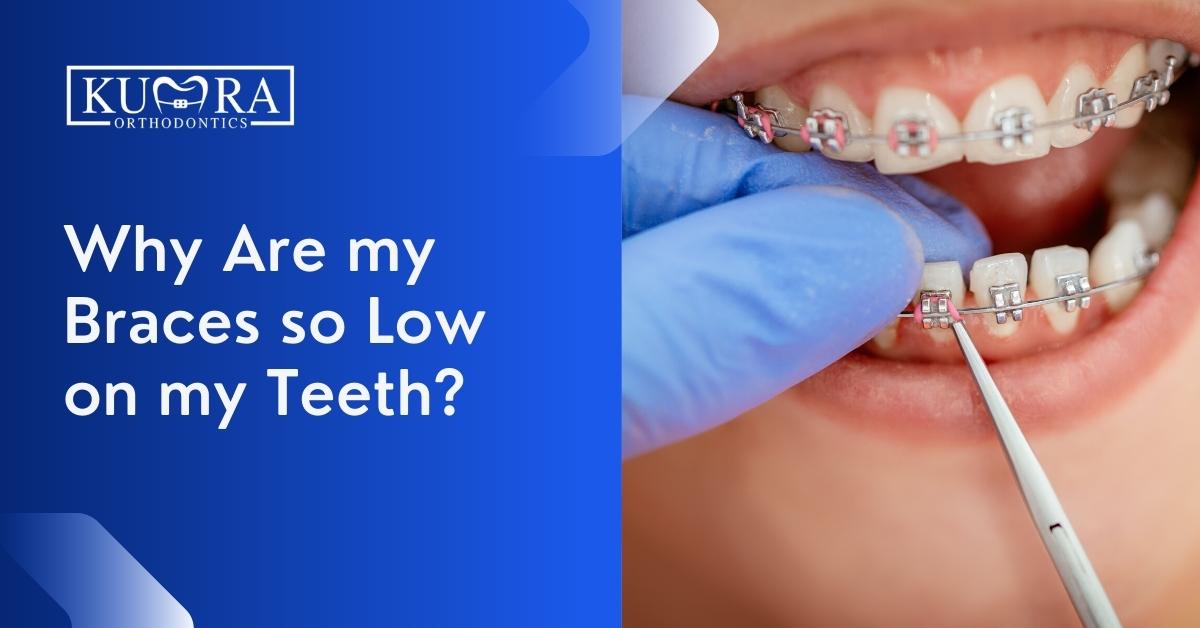Comprehensive Overview to Orthodontics Procedures for Remedying Oral Imbalances
In the realm of orthodontics, the trip to accomplishing a flawlessly straightened smile entails a myriad of procedures tailored to deal with oral misalignments. From typical dental braces to invisible aligners and even surgical options, the area of orthodontics uses a variety of solutions to attend to varying degrees of dental abnormalities. Comprehending the details of each procedure, including their devices, advantages, and potential drawbacks, is vital in making notified choices regarding one's orthodontic treatment. As we navigate through the detailed overview to orthodontic treatments for fixing oral imbalances, the elaborate details of each approach will certainly unfold, shedding light on the course toward a harmonious and useful oral positioning.
Orthodontic Procedures Introduction

Along with clear aligners and traditional dental braces, orthodontists may likewise recommend various other treatments like headgear, palatal expanders, or retainers to deal with details placement problems (cumming orthodontics). These procedures are tailored to each individual's one-of-a-kind requirements and may include a mix of therapies to attain the wanted outcomes. Normal changes and tracking are critical parts of orthodontic therapy to guarantee progression is on track and to make any kind of needed modifications along the method. By undergoing orthodontic procedures, clients can not only accomplish a straighter smile yet additionally improve their overall oral health and feature.
Standard Dental Braces: Just How They Work
When thinking about orthodontic therapies for oral imbalances, conventional braces attract attention as a time-tested technique for correcting teeth placing. Conventional dental braces include brackets, cables, and bands that collaborate to use continual pressure on the teeth, progressively relocating them right into the wanted positioning. The braces are connected to the teeth utilizing an unique adhesive, and the cords are threaded via the braces. By readjusting the stress of the cables, orthodontists can regulate the instructions and force applied to each tooth, guiding them right into appropriate positioning gradually.
One secret facet of how conventional dental braces work is the process of bone makeover. As stress is used to the teeth with the braces, the bone surrounding the teeth is reshaped to support the new tooth positions. This makeover is crucial for the lasting stability of the corrected positioning. People will certainly need routine adjustments at the orthodontist's workplace to make certain the braces remain to use the right pressure for efficient teeth activity.
Undetectable Aligners: Cons and pros
Undetectable aligners supply a convenient and very discreet choice to conventional dental braces for dealing with dental imbalances. These clear, customized trays are virtually unseen when used, making them an appealing choice for individuals seeking an extra aesthetically pleasing orthodontic treatment. One of the key advantages of undetectable aligners is their removability, permitting less complicated maintenance of oral hygiene contrasted to conventional dental braces. Clients can eliminate the aligners before consuming or cleaning their teeth, lowering the threat of food obtaining stuck in the appliance and simplifying the cleaning procedure.

Surgical Orthodontic Options
Surgical treatments in orthodontics existing practical alternatives for addressing complex oral misalignments that might not be successfully dealt with via traditional orthodontic therapies. While undetectable aligners and conventional dental braces can deal with many orthodontic concerns, specific cases call for medical treatment to attain optimum outcomes. Surgical orthodontic choices are generally advised for serious malocclusions, considerable jaw discrepancies, and situations where the underlying bone structure requires modification to accomplish appropriate positioning.
One common medical orthodontic treatment is orthognathic surgical treatment, which involves repositioning the jaws to deal with functional problems such as difficulty speaking or chewing. This surgery is often performed in collaboration with an orthodontist who helps line up the teeth before and after the treatment. Surgical orthodontics might additionally include procedures to reveal impacted teeth, get rid of excess gum tissue, or improve the jawbone to create an extra unified facial profile.
Before thinking about surgical orthodontic options, people undergo a thorough assessment to establish the requirement and potential advantages of such treatments. cumming orthodontist. While surgery may appear difficult, it can considerably enhance both the function and looks of the smile in situations where standard orthodontic therapies fall short
Retainers and Post-Treatment Care

Post-treatment treatment involves following the orthodontist's directions faithfully. This might consist of appropriate oral health methods, going to follow-up appointments, and wearing the retainers as prescribed. Failure to adhere to post-treatment treatment instructions can result in regression, where the teeth gradually return in the direction of their initial positions. Constant retainer wear, great oral health, and regular dental exams are important for maintaining the outcomes attained with orthodontic surgery and guaranteeing the lasting security of the fixed oral placement.
Final Thought
To conclude, orthodontic procedures use various options for correcting oral imbalances. Traditional braces make use of metal brackets and wires to shift teeth into correct placement. Undetectable aligners offer a more very discreet option but may not appropriate for all instances. Surgical orthodontic options are readily available for extra serious imbalances. Retainers are typically used post-treatment to preserve the brand-new placement. Overall, orthodontic procedures can properly boost oral health and visual appearance.
As we browse through the comprehensive overview to orthodontic treatments for correcting oral misalignments, the intricate details of each method will unravel, losing light on the path toward a harmonious and functional oral positioning. - braces
One of the most common orthodontic therapies is the use of braces, which consist of steel braces and cords that apply mild stress to progressively move teeth into the preferred position.When taking into consideration orthodontic therapies for oral imbalances, typical braces stand out as a tooth filling tried and true method for fixing teeth positioning. Furthermore, unnoticeable aligners may not be appropriate for complex orthodontic issues that require more substantial teeth movement, as they are typically suggested for mild to modest instances. Retainers are custom-made orthodontic devices designed to hold teeth in their dealt with settings after the conclusion of orthodontic therapy.
Comments on “Leading Tips for Choosing the Best Cumming Orthodontist for Braces and Aligners”